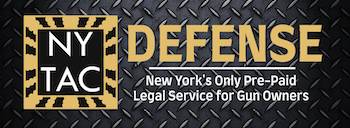Representation.
State Tax Fraud
New York criminal tax fraud charges may be serious, but with the right representation the punishment may be mitigated, the charges may be dropped, or at least reduced.
If you or someone you love has been accused of criminal tax fraud in New York you need one of our New York criminal defense attorneys to help you navigate the complexities of the law and help you achieve the best possible result in your case. Call us today for a free consultation.
New York criminal tax fraud is codified at New York Tax Law § 1801-1806. Those convicted of criminal tax fraud are punished based on how much tax was not paid. This amount can range from a de minimis amount being a class A misdemeanor to $1,000,000 or greater in evaded taxes which will result in a class B felony charge of criminal tax fraud in the first degree. There are eight ways that one may commit tax fraud under Section 1801, but they all require a willful mental state. Willfulness for the purposes of Section 1801 requires the intent to cause a fraud, the intent to dodge paying taxes, or the intent to not perform a duty required by the tax law of New York.
The eight ways to commit criminal tax fraud in New York are as follows; 1) Willfully not submitting a tax return or another important tax document. 2) Willfully and with knowledge executing and preparing a fake tax return 3) Lying and entering incorrect information on the tax return 4) Willfully entering into a plan to bring a fraud on the state of New York regarding any matter that is associated with tax law. 5) Business failing to pay the required payroll or sales taxes remittances back to New York state. 6) Willfully not taking in a sales, excise, or withholding tax. 7) Failing to pay one’s taxes willfully and intending to escape paying taxes. And 8) passing false tax exemption certifications.
Each of the aforesaid acts may be punished as a misdemeanor, but each act may also be aggravated to the level of a felony with the inclusion of two elements. The first element is the specific intent to escape paying taxes, or to cause a fraud on the state of New York. The second element is that the total monetary harm of the fraud has to pass the low cash ceiling of $3000.00.
New York criminal tax fraud may also be punished by monetary penalty. New York Tax Law 1800(c) punishes the felony charges by fines of either twice the amount of taxes that were not paid, or $50,000 for persons or $250,000 for corporations. Misdemeanor tax frauds incur financial penalties of $10,000 for persons and $20,000 for businesses.
One saving grace for defendants is that new laws set out in New York Tax Law 1807 prohibit the aggregation of the amount of unpaid taxes over the course of many years. Only the taxes that are not paid in the year of the prosecution may be aggregated into one single count.
The venue of a tax fraud prosecution can add to the punishment by being inconvenient and burdensome. New York Criminal Procedure Law 20.40(4) allows prosecution for New York criminal tax fraud in any county where the economic activity that gave rise to the unpaid taxes occurred. The result is that one person who owns a business in Erie county but resides and files taxes in Suffolk county may be haled before a court in Erie county to defend criminal tax fraud charges, despite the fact that they may never have even set foot in Erie county.
If you or someone you love has been accused of criminal tax fraud in New York you need one of our New York criminal tax fraud lawyers to help you navigate the complexities of the law and help you achieve the best possible result in your case. Call us today for a free consultation.

















